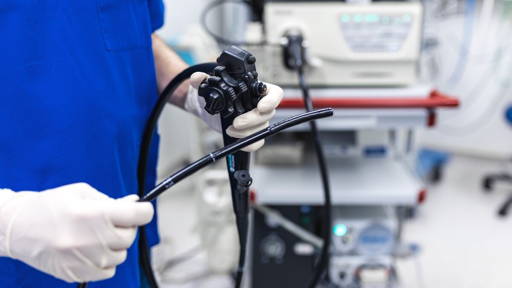Isala Hospital in Zwolle, Netherlands, has become the first hospital worldwide to place an updated, implantable insulin pump in a patient with type 1 diabetes. The placement marks the start of the international Phoenix study, which is investigating the operation and reliability of this new generation pump - developed by Medtronic. Isala is the only hospital in the Netherlands participating in this important study.
The study focuses on a specific group of patients for whom conventional therapies such as injections or external insulin pumps are not sufficient. This group is small - only an estimated 40 people in the Netherlands - but faces severe regulation problems and increased risks of complications. Internist-endocrinologist Dr Peter van Dijk, who is leading the study, says: "For these patients, an alternative form of insulin delivery is vital. As a centre of expertise, we are consciously committed to this group."
Implantable insulin pump
In people with type 1 diabetes, the body does not produce insulin itself. While most patients administer insulin via injections or an external pump, this is not feasible for a small group of patients. They respond poorly to subcutaneous administration or suffer from rare insulin processing disorders. The updated implantable pump offers a valuable alternative for this group.
The pump is placed subcutaneously in the abdominal wall and delivers insulin directly into the abdominal cavity through a tube. This direct delivery form leads to better absorption, more stable glucose levels and fewer hormonal disturbances. It also decreases the number of hospital admissions and patients experience more control over their health. ‘The quality of life demonstrably improves,’ says Van Dijk.
Technology with future potential
The pump is a third smaller than its predecessor, more accurate in dosing and controllable via an app. Although coupling with a glucose sensor is still missing, this is seen as a logical next step. Previous deployment of similar pumps at Isala was limited by supply problems, but the Phoenix study now offers the prospect of reintroduction and further development.
Gary Dulak, Senior Director of Medtronic's New Venture programme, stresses the importance of this development: "For people with this rare and difficult-to-treat form of diabetes, our implantable system is vital. It provides them with the continuous treatment they need."
The Phoenix study is being conducted at multiple centres worldwide. A total of 20 patients will be included, including three at Isala. The study lasts six months and is intended as a stepping stone to wider certification and availability of the pump. With this first, Isala confirms its role as a leader in innovative diabetes care and shows how technology directly contributes to better and more personalised care.
Development of diabetes care
There is a lot of research into, and progress on, technological innovations and solutions for the treatment of diabetes worldwide. In 2020, for example, the UMCG introduced the advanced Tandem t:slim X2 insulin pump. This smart pump works together with a continuous glucose monitor (CGM) that measures real-time blood sugar values and sends them to the pump via a secure connection. The system automatically adjusts insulin delivery, which helps prevent hypos and contributes to more stable glucose regulation.
In autumn 2023, we wrote about the development of an innovative, implantable “insulin factory” by scientists at the Massachusetts Institute of Technology (MIT). An innovation that faced many challenges then, and still does, but could ultimately be a breakthrough for the treatment of type 1 diabetes.









